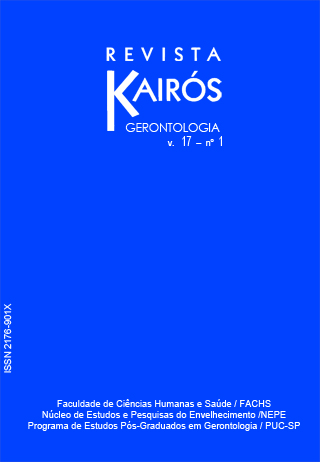Viudez y Vejez en América Latina
DOI:
https://doi.org/10.23925/2176-901X.2014v17i1p9-26Palavras-chave:
Viudez, Vejez, Latinoamérica.Resumo
La pérdida por fallecimiento del cónyuge constituye el estado denominado viudez e implica un cambio que requiere realizar un ajuste psicosocial y familiar para asumir la pérdida. El significado que se le atribuye a la viudez depende de condiciones socio-culturales, económicas y personales tales como la edad, género, cantidad de años vividos con la pareja, etapa de la vida en la que se experimenta la viudez entre otros. Los objetivos del estudio se centraron en investigar las circunstancias de la viudez, consecuencias, la red social de apoyo, participación social y formación de nuevas parejas. Metodología: Se realizó un estudio descriptivo transversal en personas mayores de 60 años de edad y más (N: 235), con al menos 10 años de viudez, residentes en distintas zonas de Argentina, Bolivia, Chile, Colombia, Ecuador, Paraguay; Uruguay y Venezuela. Los resultados muestran mayoría de mujeres 62,6% perdieron a sus maridos a causa de una enfermedad terminal, el 65,5% se encargó de su cuidado. Con la viudez aparecieron problemas económicos (37,4%) problemas de salud (31,5) y soledad (51,5%). Un 77. 9% reportó haber superado la perdida 86.4% recibió el mayor apoyo emocional de la familia de origen. La mayoría no mantiene relación con la familia del conyugue después de la muerte. Un alto porcentaje de los participantes incrementa su participación en las diferentes actividades: religiosas 56,6%, 40,4% tramites bancarios, 39,1% educativas y 35,7% turismo. La mayoría describe la relación con su pareja como buena, mientras que el 77,4% no formó nuevas relaciones. Conclusiones: la esperanza de vida de las mujeres determina un mayor porcentaje de viudas, las mujeres son responsables del cuidado del conyugue. La muerte y la soledad por la pérdida de la pareja ocasionaron que las viudas se refugiaran en la familia. Después de la pérdida, la participación social aumenta y disminuye la relación con la familia del cónyuge.


